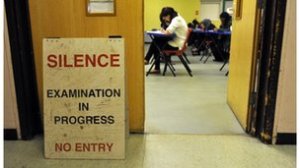The current topic of students GCSE grades being rejected for remarking has caused uproar from students, schools, unions and councils. The high court has now decided to reject the demands to raise pupils GCSE grades, sat last summer. This decision may appear disobliging to some, but surely one rule must apply to all, in order to set a fair benchmark? The ruling has of course affected hundreds of pupils who were expecting to obtain at least a C grade and instead, they are now left extremely disappointed as the grade boundaries have been increased.
The decision to lower the summer exam grade boundaries to the lower level used for January exams last year was overruled due to an “unrealistically high proportion of students obtaining a C grade.”
Being a student myself, I can sympathise with the pupil’s disappointment as I know how vital these grades can be. If I hadn’t obtained the right grades I wouldn’t be where I am today. This decision might impact on more students giving up on their studies if they feel the grades they need are unattainable.
What about you? Would this spur you to get motivated and achieve the grade you want so badly?
Many pupils claim they missed out on sixth form places because of the changes. Where would you be now if this had happen to you? It’s certainly something to think about.
This decision has caused conflict to arise with the pupils and schools against the high court as they feel this is an unfair judgement on their future. This links in with a conflict definition as,
“a process which begins when one party perceives that another party has negatively affected, or is about to negatively affects, something the first party cares about.” Buchanan & Huczynski (2007:764)
The conflict in this situation occurred due to the pupils feelings that the court has negatively affected their future ambitions as they did not get the grades they expected.
With the five dimensions of conflict resolution approaches, it is evident the court decided to use the ‘competing’ style as they were forceful and uncooperative. Do you think this was the right approach or could they have been more compromising or accommodating?
Although the pupils must be heartbroken about the outcome, I believe if the judge had used the accommodating approach and raised the grade levels for some of the student population, they would have had to change the grade for all pupils for a fair outcome.
This could lead to more complicated problems in the future, such as not enough places at colleges or Universities which in turn could cause even more issues. .As much as I sympathise with the students, I agree with the competing style of the court as it lead to their decision to be fair to all students. This approach resulted in the same outcome for everyone involved, a decision which I believe to be unbiased and fair-minded.
I hope this encourages and motivates future pupils to work really hard to obtain the grades they want so disappointment like this can be avoided in the future. It would be easier for students to rely on something they can control rather than setting all of their hopes on a decision that is out of their hands.
What do you think?


